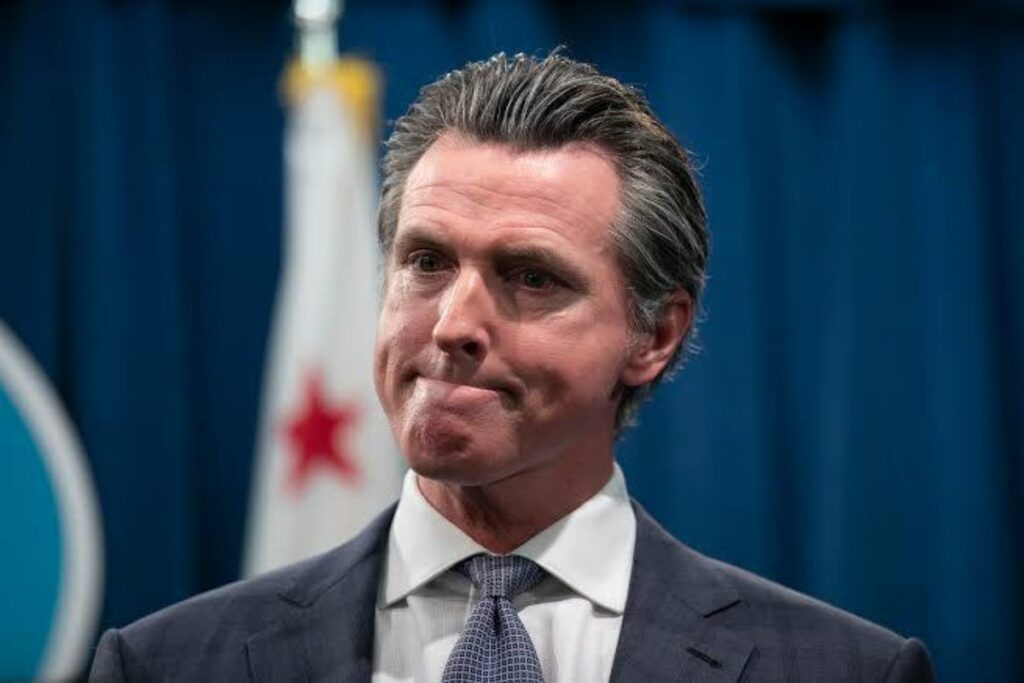Once known for its scenic landscape, diversity, and powerful politics, California is now a shadow of itself. In 2022, the state boasted a higher GDP than most countries, becoming the fifth-largest economy in the world. However, the state has been tossed into chaos since Governor Gavin Newsom introduced a new minimum wage law.

The new minimum wage law increased the minimum wage for fast-food workers from $15.50 to $20 per hour. While the increase seems to benefit fast-food workers, its ripple effects have sparked discussions about its impact on the broader economy.
Many economists have different opinions on its implications and consequences. Since the minimum wage increase, the fast-food industry in California has witnessed a rollercoaster of effects. With the increment came multiple layoffs as restaurants grappled with the increasing running costs while battling inflation.
Besides the economic downturn, Newsom’s minimum wage increase has raised eyebrows among lawmakers for allegedly playing favorites. The wage hike law contains an exemption that benefits Panera Bread Franchise, owned by Greg Flynn.
ALSO READ: Chipotle vs McDonald’s: Fast Food Pricing Amid Inflation
The law, which aims to increase the minimum wage of low-income fast-food workers, does not apply to restaurants with “on-site bakeries.” Despite the backlash to the exemption, Newsom has denied allegations of favoritism. “This story is absurd,” Alex Stack, a spokesperson for the Governor, said, dismissing the claims.
Notably, Flynn is a major campaign donor to the Governor and has donated over $200,000 to Newsom, which sparked the allegations of corruption. As a result, lawmakers condemned the bill exemption, stating it was unacceptable.
California Senate leader Brian Jones said, “It is unacceptable,” noting that campaign donations should not prompt exemptions from legislation. Similarly, James Gallagher pointed out that there was no reason for the exemption and that “someone had to push for it.”
POLL—Should the Government Increase Taxes on the Wealthy To Reduce Economic Inequality?
Due to the widespread outrage, state lawmakers called for a thorough investigation into the exemption and whether the donations influenced it. The wage increase for fast-food workers aimed to reduce the wage disparities in the different sectors of the state’s workforce.
However, with fast-food restaurants already grappling with inflation, which has led to increased menu prices and, ultimately, customer backlash, the wage increase seems to be posing a threat to fast-food businesses in the state. However, proponents argue that the increase has more benefits than perceived harms.
They argue that the wage hike will increase employee satisfaction, urging workers to better satisfy their work demands. They also say the wage increase will improve their mental health, overall productivity, and well-being.
ALSO READ: Bad News for Staff as California Fast Food Chains Discover Ways to Bypass Raising Minimum Wages
Conversely, opponents have expressed concern about how California’s once-booming economy has been cloaked in uncertainty and rising unemployment. Furthermore, as restaurants try to keep up with the wage increase, they’ve had to make the tough decision of laying off workers or, worst case, shutting down.
Customers have also had to bear the brunt as restaurant chains have increased the prices of their menu items. As life in the Golden State becomes increasingly unsustainable, residents flee to other states.
Many are moving to parts of the country with lower taxes and better economic conditions. Will Newsom address the crisis in its initial state, or will this be another failure for his administration? Time alone will tell.
You Might Also Like:
California Bans Restaurant Service Fees
Four Officials Killed, Four Injured in North Carolina While Serving Warrants
Retirement Facility To Pay 78-Year-Old Woman $78,000 After Firing Her
Mexico Deploys Troops to the US Border Amid Increased Violence
Jack Smith Scores a Win in Trump’s Classified Document Case
